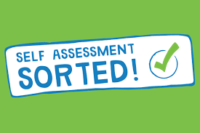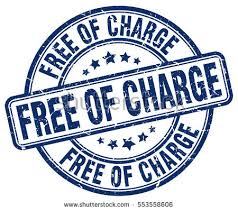
Landlord Self-Assessments
Landlord self-assessments – yes it’s that time of year again….. but help is at hand!
1. As a landlord, you may have to pay tax and this may need reporting as part of your self-assessment. At Stuarts Property Services, ANOTHER benefit of being on our full management service is that we can provide for you a statement summary for the tax year (or any other period that you may require if you reside abroad and they have different tax periods) and we are offering this….

Just send Clare Hayes or Amanda Adams an email to request this and we will send you your report. Click HERE for our email addresses.
2. Alternatively, there is a webinar that you can register yourself onto for guidance…. click here
3. HM Customs have also issued a UTube guidance to help you out, see below to click and watch the video
In a nutshell*….
Property you personally own
As a landlord, you must contact HMRC if your income from property rental is less than £2,500 a year, but you must report it on a Self Assessment tax return if it’s:
- £2,500 to £9,999 after allowable expenses
- £10,000 or more before allowable expenses
If you don’t usually send a tax return, you need to register by 5 October following the tax year you had rental income.
Working out your profit

You work out the net profit or loss for all your property lettings (except furnished holiday lettings) as if it’s a single business. To do this, you:
- add together all your rental income
- add together all your allowable expenses
- take the expenses away from the income
Work out the profit or loss from furnished holiday lettings separately from any other rental business to make sure you only claim these tax advantages for eligible properties.
Furnished residential lettings
You may be able to claim ‘wear and tear allowance’:
Residential properties
You or your company must pay tax on the profit you make from renting out the property, after deductions for ‘allowable expenses’.
Allowable expenses are things you need to spend money on in the day-to-day running of the property, like:
- letting agents’ fees
- legal fees for lets of a year or less, or for renewing a lease for less than 50 years
- accountants’ fees
- buildings and contents insurance
- interest on property loans
- maintenance and repairs to the property (but not improvements)
- utility bills, like gas, water and electricity
- rent, ground rent, service charges
- Council Tax
- services you pay for, like cleaning or gardening
- other direct costs of letting the property, like phone calls, stationery and advertising
Allowable expenses don’t include ‘capital expenditure’ – like buying a property or renovating it beyond repairs for wear and tear.
You may be able to claim tax relief on money spent on replacing a ‘domestic item’. This is called ‘replacement of domestic items relief’.
Domestic items include:
- beds
- sofas
- curtains
- carpets
- fridges
- crockery and cutlery
You must have only bought the domestic item for use by tenants in a residential property and the item you replaced must no longer be used in that property.
Declaring unpaid tax
You can declare unpaid tax by telling HMRC about rental income from previous years. If you have to pay a penalty it’ll be lower than if HMRC find out about the income themselves.
You’ll be given a disclosure reference number. You then have 3 months to work out what you owe and pay it.
Running a property business
You have to pay Class 2 National Insurance if your profits are over £5,965 a year and what you do counts as running a business, for example if all the following apply:
- being a landlord is your main job
- you rent out more than one property
- you’re buying new properties to rent out
If your profits are under £5,965, you can make voluntary Class 2 National Insurance payments, for example to make sure you get the full State Pension.
You don’t pay National Insurance if you’re not running a business – even if you do work like arranging repairs, advertising for tenants and arranging tenancy agreements.
Property owned by a company
Count the rental income the same way as any other business income.
HM customs guidance video:-
https://youtu.be/R3VhdON8Fio?list=PL8EcnheDt1ziQSjJNRITtCf7XD_ne-_lQ
*It is always advisable to seek legal / professional advice from an accountant or other professional to discuss your personal circumstances.